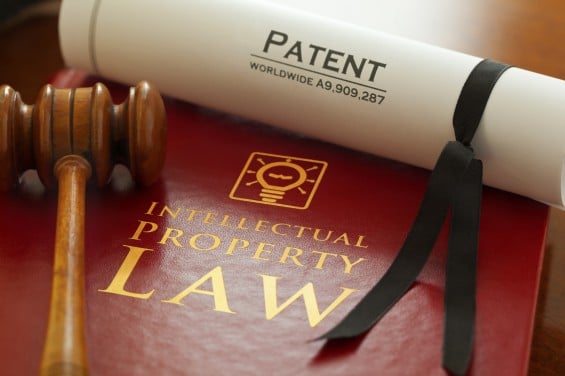Intended to Infringe But Didn’t? Above the Law
[ad_1]
 Now that the first quarter of 2020 is coming to an end, I had two column ideas. One idea has been put on hold for the time being. It was to examine a day’s worth recent complaint filings of patent cases to get an idea of what types are being filed at this moment. In 2018, I Heralded The importance of scanning complaint as critical for developing “a real time understanding of the patent litigation terrain as possible so that one’s client advice is as well informed and timely. I still stand by the advice I gave back then, and I look forward to a future complaint checkup. This week, a look at the newly filed cases must take a backseat to a Federal Circuit precedent Decisionmakers In a medical case involving the safe harbour provision of 35 U.S. Code § 271(e)(1). The split decision in the case of interest between majority and dissent focused on the meaning of one word in the relevant law, providing an interesting example as to the Federal Circuit’s approach in statutory interpretation when applied to appellate review district court infringement cases.
Now that the first quarter of 2020 is coming to an end, I had two column ideas. One idea has been put on hold for the time being. It was to examine a day’s worth recent complaint filings of patent cases to get an idea of what types are being filed at this moment. In 2018, I Heralded The importance of scanning complaint as critical for developing “a real time understanding of the patent litigation terrain as possible so that one’s client advice is as well informed and timely. I still stand by the advice I gave back then, and I look forward to a future complaint checkup. This week, a look at the newly filed cases must take a backseat to a Federal Circuit precedent Decisionmakers In a medical case involving the safe harbour provision of 35 U.S. Code § 271(e)(1). The split decision in the case of interest between majority and dissent focused on the meaning of one word in the relevant law, providing an interesting example as to the Federal Circuit’s approach in statutory interpretation when applied to appellate review district court infringement cases.
In this case, Meril tried to get FDA approval for its Myval transcatheter valves. Transcatheter valves are used in the treatment of heart disease by inserting an artificial heart valve into the patient’s heart to replace a diseased valve. These valves are attractive to those who could benefit from valve replacement because they can be replaced without open-heart surgery. Meril, an Indian company, received approval for its product first in India and then in the EU. Meril, based in India, needed FDA approval in order to sell its product in the U.S.
Meril, knowing that a successful FDA application would be bolstered by a clinical trial comparing its product to those already on the market “sought out potential clinical researchers at the 2019 Transcatheter Cardiovascular Therapeutics Conference (TCTC) in San Francisco.” The company sent 20 employees to the event, and instructed them all not to make any sales or offers to sell at the conference or in the United States. You can make an offer [sic] “For other countries.” A second employee took two Meril samples with him to demonstrate the product if anyone was interested. In the end, the samples were never removed from the bag and shown to anyone once they were imported into the United States. The fact is that it’s “undisputed” Meril did not sell or offer to sell the Myval System during the conference.
Those facts did not stop Meril from getting sued for patent infringement by one of the bigger players in the heart valve space — and no stranger to patent litigation — Edwards Lifesciences. Meril, on the other hand, won a summary judgment of no-infringement. The district judge found that the “importation” of the Myval System was not infringing under 35 U.S.C. § 271(e)(1).” Edwards appealed raising “the issue of whether 35 U.S.C. § 271(e)(1)’s safe harbor applies when undisputed evidence shows Meril’s importation of two demonstration samples of its transcatheter heart valves to a medical conference was reasonably related to recruiting investigators for a clinical trial to support FDA approval.” It did for the majority.
To arrive at this conclusion, the majority looked to a few cases it considered instructive regarding the safe-harbor issue. All of these cases interpreted the word “solely”, as not meaning “that use must only reasonably be related to the development of information and submission to the FDA.” Accordingly, the majority held that it was irrelevant to the conference “why Meril had imported the two transcatheter cardiac valve systems, or the way Meril had used the imported transcatheter cardiac valve systems.” The majority instead focused on Meril’s preconference steps in order to secure FDA approval as well as the focus of the conference on finding partners for clinical trials to support a final FDA submission. Edwards argued that Meril had authorized its employees to make non-U.S. sales offers while at the meeting, but summary judgment was appropriate. The majority, however, refused to accept this argument because no such offers were ever made. Meril’s attempts to recruit investigators for a clinical trial were not diminished by the fact that valves never “left their bag.” Nor was Meril’s intention “the only evidence on the applicability” of the safe harbour. The majority concluded that the record was sufficient to support a summary judgment of noninfringement.
In a dissenting opinion, Judge Lourie criticized the majority’s application precedents that he believes incorrectly apply the safe harbor. In his view, the use of the word “‘solely’ creates a safe harbor only for uses, sales, and importations that solely are for, as the statute says, development of information for the FDA.” While the majority applied the cases that suggested otherwise in order to sustain the finding of noninfringement, Lourie’s dissent advocates for a return to the proper construction of the word “solely” in the statute — which in his view was completely absent from the district court’s analysis of the infringement question here. After a review of the relevant Federal Circuit jurisprudence, Lourie suggests that “the law could usefully be clarified by an en banc holding of this court, expressly returning the word ‘solely’ to its Congressionally-enacted place in the statute.” And even though the Meril case only “relates to the importation of two accused devices that were admittedly never used or sold, our court’s misconstruction of § 271(e)(1) should not be left to create future mischief” according to Lourie.
It is not clear whether the Federal Circuit as a whole will accept the invitation of the dissent to consider this issue in banc. However, it’s clear that reasonable people can disagree about how the statute ought to be interpreted. In an increasingly globalized pharmaceutical market, it is important to watch any further developments in this case. Meril had escaped the finding that they only intended to violate, even when they shipped samples to the U.S., for commercial purposes, which may have been frustrated. It has never been more important to forget something in your luggage when it comes to a patent.
Please feel free send me any comments or questions via Twitter or gkroub@kskiplaw.com: @gkroub. Any topic suggestions are welcome.
Gaston Kroub, a Brooklyn resident and founding partner of Kroub, Silbersher & Kolmykov PLLCA boutique for intellectual property litigation, and Markman Advisors LLC, is a leading consulting firm on patent matters for the investment community. Gaston’s focus is on intellectual property matters, including litigation and counseling. He has a particular interest in patent matters. You can reach him by gkroub@kskiplaw.com Follow him on Twitter. @gkroub.
[ad_2]


